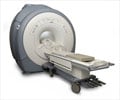Researchers from the University of Pennsylvania have obtained valuable insights into various aspects of memory storage and retrieval using a technique called functional magnetic resonance imaging. It has been demonstrated that the same areas of the brain that are active during an event are re-activated when a person attempts to recall that event.
"This study shows that, as you search for memories of a particular event, your brain state progressively comes to resemble the state it was in when you initially experienced the event. It is all part of the brain's ability to cross-reference memories, pulling together separate pieces of information from an elaborate network of stored representations to recreate an event," said Sean Polyn, a senior researcher involved in the study."An every-day strategy for getting at lost memories involves using a part of a memory to pull out the entire thought, much like when you try remember where you put your keys last night," Polyn said. "If you recall that you were washing dishes, that might trigger associated memories, leading you to remember that your keys are next to the sink. We refer to this phenomenon as 'bootstrapping.'”
This occurs in a region of the brain called hippocampus. This region of the brain helps in the sorting of memory bins, and helps the brain revisit the state at the time of the initial experience. The inability to revisit the specific brain and recall something leads to frustration.
The study revealed rapid fluctuations in the brain activity levels in just a few seconds. The study participants were given nearly 90 things to remember, comprising of celebrity faces, common objects and famous locations. fMRI was used to identify specific regions of the brain involved in the learning process for each of the categories. An appropriate technique to track the brain activity was developed for each act of retrieval. This provided a form of readout of the search activity performed by the brain.
In order to avoid confusion and enhance deep thinking, several questions related to the presented data were raised among the study group, such as asking whether or not the subject liked or disliked a labeled photograph of comedian Carrot Top. This also allowed them to form stronger memories. The subjects were given arithmetic problems to prevent memorizing the 90 items and were then asked to recollect it in a random fashion.
The analysis revealed that participants activated portions of brain that stored memories of faces prior to naming of celebrities. Similar effects were observed when objects and locations were recollected. A corresponding shift in the brain activity was noted when the participants moved from one category to another.
Advertisement
The researchers believe that an adequate knowledge of patterns of memory utilization could be extrapolated to the development of novel treatment strategies for treatment of diseases such as Alzheimer’s and epilepsy. It could also play a vital role in the development of artificial intelligence systems such as robots.
Advertisement








